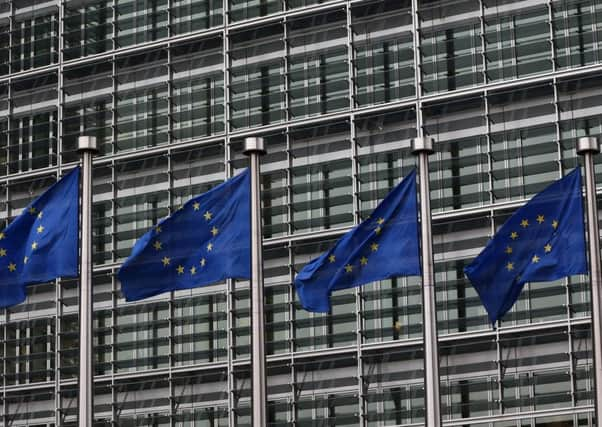Michael Keating: Facing up to facts is key to EU referendum


Four big issues have featured in the debate about the UK’s membership of the European Union (EU) and the present referendum campaign: the economy; sovereignty; migration; and keeping access to the European Single Market.
While both sides have sought to put precise figures on the costs of staying in or leaving the EU, it is impossible in practice to quantify. Most studies have shown a short-term loss but in the long-term there are too many unknown factors. Much will depend on decisions of future governments and the trade deals they can negotiate. Short-term disruption could be avoided only by keeping the UK within the European Single Market.
Advertisement
Hide AdAdvertisement
Hide AdSovereignty has been a big concern for Brexiters from both the right and the left. In one sense, British sovereignty is already secure, as the very act of holding a referendum shows. Parliamentary sovereignty in the traditional Westminster sense, however, has long been eroded. Devolution has altered the balance of power and Westminster no longer pretends it can over-ride the Scottish Parliament at will. The increasing use of referendums effectively transferred sovereignty from Parliament to the people. Membership of the EU has challenged the old idea of sovereignty since, as long as it remains a member, the UK must share the exercise of sovereignty with its partners. EU law over-rides UK law in the relevant fields and is often directly applicable. It is mostly adopted by Qualified Majority Voting in the Council of the European Union and the elected European Parliament. The provisions negotiated by David Cameron for national parliaments to intervene in the EU legislative process make almost no difference here.
European states retain control over non-European migration but not over the movement of workers from other member states. This is one of the four pillars of the internal market, along with movement of goods, services and capital. Mr Cameron was firmly told at the beginning of the process that this is untouchable.
The Single Market is what distinguishes the EU from a normal free trade area, in which goods move without tariff barriers. In the Single Market there is also free trade in services (a particular interest to the UK). Non-tariff barriers to trade are also being removed. These include different product standards and restrictions on access to trades and professions. There has also been extensive harmonisation and raising of environmental standards. It was in order to secure this Single Market that Margaret Thatcher accepted Qualified Majority Voting in the Single European Act during the 1980s. Otherwise, any member state, under pressure from domestic protectionist lobbies, could have held up each of the thousands of measures needed to make the market a reality. The other side of this coin is a loss of sovereignty.
It is possible for a state to get access to the Single Market without being a member of the EU but only if it accepts all the rules. This is essentially the position of Norway, which is associated with the EU through the European Economic Area. Norway is obliged to accept all the Single Market regulations, past and future, but without a vote in making them. Switzerland has a similar arrangement but without the ability to market its services (including financial services) freely. Both Norway and Switzerland have to accept free movement of workers; indeed Switzerland’s deal with the EU is currently endangered by the result of a referendum that broke this principle. So market access, again, comes at the cost of sovereignty.
It is not therefore possible to combine economic continuity, full sovereignty, control over the movement of European workers into the UK, and access to the Single Market. The alternative is for the UK to negotiate a new position in world markets without any particular link to Europe. That is attractive to some Brexiters on both right and left, while many other voters see it as a high-risk gamble.
Aimed at enlightening the European Debate, the RSE, the Centre on Constitutional Change, and UK in a Changing Europe are holding a series of events which will examine the implications for the UK of either decision. Key issues including: fiscal matters and trade; freedom of movement; social Europe; the environment; and the impact on devolved areas such as Scotland will be considered. The series was launched on 16 February with Understanding European Challenges which examined the overall landscape. The following events will now be held throughout Scotland:
23 May, The Economics of the Choice. Edinburgh
31 May, The UK in Europe. In or Out? Inverness
1 June, Living and Working in Europe. Glasgow
7 June, Constitutional Options. Edinburgh
Leading up to the referendum, the RSE will also publish position papers on the key issues for the consideration of voters when making their referendum choice.
• Michael Keating is a Fellow of the Royal Society of Edinburgh and a member of its international committee.
He is also Professor of Politics at the University of Aberdeen, Senior Fellow in the ESRC UK in a Changing Europe programme and director of the Centre on Constitutional Change.www.royalsoced.org.uk